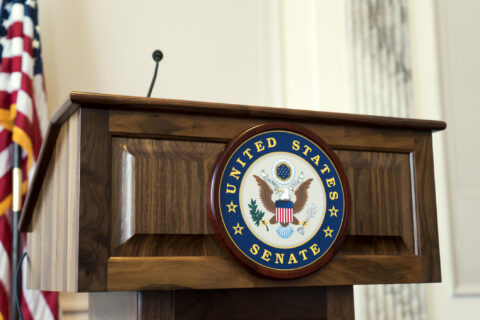The $1.2 trillion Bipartisan Infrastructure Law, also known as the Infrastructure Investment and Jobs Act, represents a historic opportunity to rebuild our nation’s infrastructure, fight the climate crisis, and create good jobs for workers in every part of the country. As the Biden administration begins to distribute infrastructure funding to states and cities, elected officials and contracting agencies will play a key role in using this money to create good-paying jobs for their communities. But one federal regulation is standing in the way of local economic prosperity.
What is the “Uniform Guidance”?
The “Uniform Guidance” is a set of regulations issued by the U.S. Office of Management Budget (OMB). First created in the 1980s during the Reagan administration, the Uniform Guidance contains important standards for how recipients of federal grants must purchase goods and services using federal funds. OMB requires all federal government agencies that award grants and cooperative agreements to fully implement the Guidance. It is intended to ensure that non-federal entities (like cities) are treated in accordance with the same policies, regardless of which federal agency provides their financial assistance awards.
While the Uniform Guidance has streamlined the federal grant making process and removed administrative burdens on grant recipients, it has also had the effect of preventing recipients from enacting progressive policies at the local level. For example, the Uniform Guidance requires all procurement transactions using federal grant funds be conducted in a manner to provide “full and open competition,” and identifies and prohibits numerous situations that the original authors considered to be restrictive of competition. Among these is a prohibition against the use of statutorily or administratively imposed state, local, or tribal geographic preferences in the evaluation of bids and proposals. This extends to targeted hiring policies favoring residents of a particular jurisdiction. An exception is a case where an applicable Federal statute expressly mandates or encourages such a geographic preference. Several noteworthy decisions of the United States Supreme Court have involved litigation involving these principles.
Local officials, labor unions, and community groups have argued for decades that connecting infrastructure projects with good jobs for local workers is not only something that communities desperately want, but something that would have a major positive impact on regional economies. In fact, many cities around the country have already implemented successful local hire programs using non-federal funds or through special federally-funded pilot projects. According to an analysis conducted by Jobs to Move America on the Obama-Biden local hire pilot project, allowing local hire provisions in federally-funded contracts did not systematically impact competition, in that it did not impact bid prices or reduce the number of bidders on construction projects.
Opportunity to Hire Locally
Congress took the first step with the Bipartisan Infrastructure Law by allowing local hire on federally-funded transit construction projects. This means states and cities can make sure their residents are hired to repair roads, bridges, and highways, build electric vehicle charging infrastructure, and construct bus-related facilities.
However, local hire is still prohibited on billions of dollars of infrastructure funding, including projects to upgrade and expand broadband infrastructure, replace lead pipes and other aging water systems, provide weatherization upgrades to make homes and buildings more energy efficient, and update and construct new facilities at our nation’s ports and airports.
The Biden administration can allow local hire on these types of projects right now by updating the Uniform Guidance. Indeed, the White House Task Force on Worker Organizing and Empowerment included this action in their recent report on recommending steps President Biden can take to strengthen unions and lift up workers in the United States. 76 Members of Congress have also encouraged the President to make this update.
Jobs to Move America has also made additional suggestions to the Biden administration on ways the Uniform Guidance can be updated to allow cities and states to take job quality and racial equity into account when contracting with federal funds. These include:
- Giving permission for cities and states to do targeted hiring for groups that traditionally haven’t had access to infrastructure jobs
- Enshrining in regulation the ability for cities and states to enter into Project Labor Agreements (PLAs)
- Raising labor standards and protecting workers through industry transitions
- Encouraging cities and states to use a U.S. Jobs Plan and take job quality into account when they purchase goods and services with federal funds. Among other things, this would encourage states and localities who are purchasing major manufactured equipment, like vehicles, to get their contractors to make commitments to creating good jobs and providing family-sustaining wages and benefits.
Taken together, these provisions can substantially increase the ability of state and local agencies to use their procurement processes to create fulfilling, safe, high-road jobs for workers in their communities–especially for people of color, women, returning citizens, veterans, and other workers facing barriers to employment.
Next Steps
Jobs to Move America is also collecting signatures from elected officials for a letter to the Biden administration advocating for updating the Uniform Guidance. Please review a copy of the letter here, and reach out to Michael Lawliss at mlawliss@jobstomoveamerica.org to join the letter.
Join Us
The National League of Cities and Jobs to Move America will be hosting a call on June 14, 2022, at 2 p.m. EST for elected officials, agency staff, and other interested parties on local hire implementation.

About the Author:
Michael Lawliss is a Senior Policy Coordinator for Jobs to Move America’s National program.








